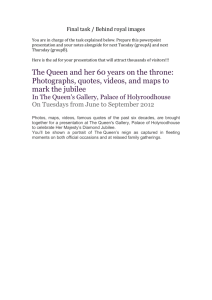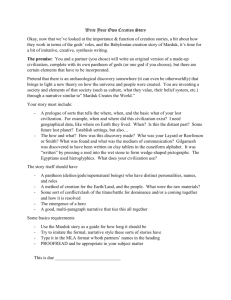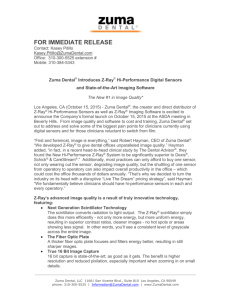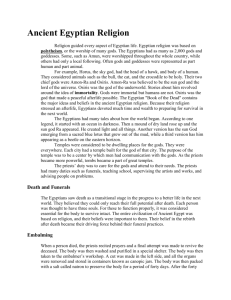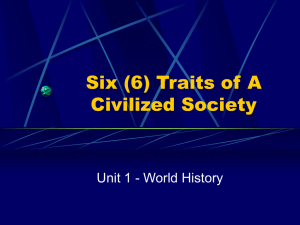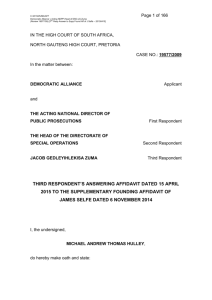Quetz Civilization Story Document
advertisement
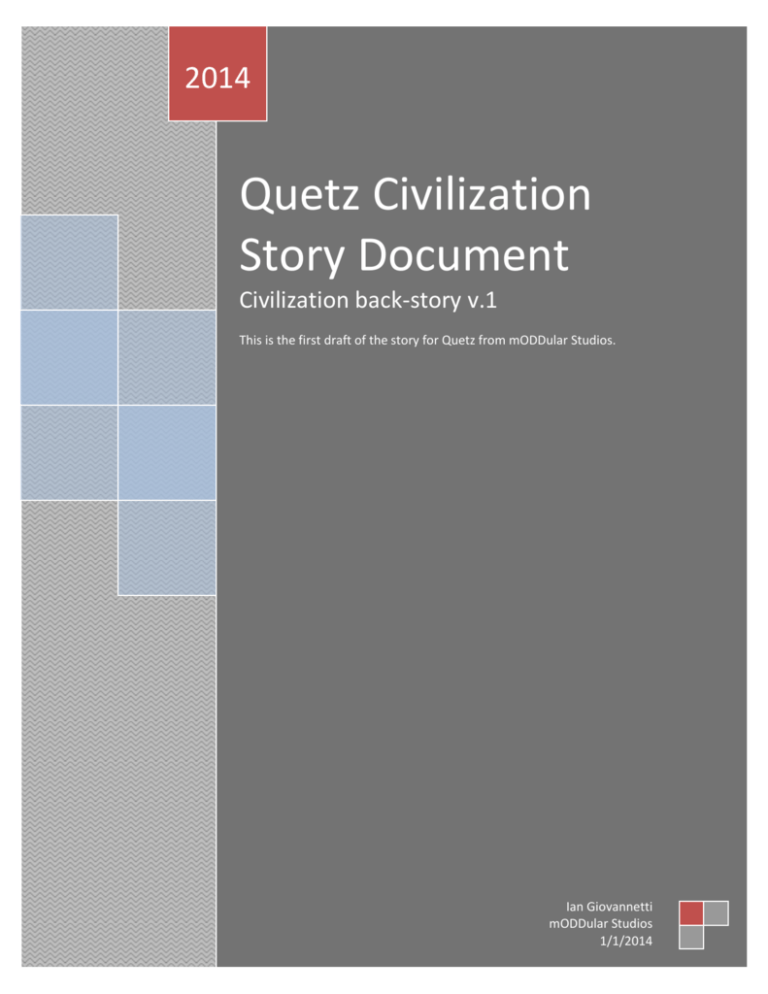
2014 Quetz Civilization Story Document Civilization back-story v.1 This is the first draft of the story for Quetz from mODDular Studios. Ian Giovannetti mODDular Studios 1/1/2014 Contents Quetz Back-Story V.1............................................................................................................................. 3 The Age of Creation .................................................................................................................................. 3 The Age of Development .......................................................................................................................... 3 Hierarchy: .................................................................................................................................................. 5 The Age of Betrayal: .................................................................................................................................. 6 Final thoughts: .......................................................................................................................................... 9 2 Quetz Back-Story V.1 The Age of Creation: There was once an island located in the North Atlantic Ocean, in the area that we now call the Bermuda Triangle, known as Quenita. On this island lived many tribes, of many different cultures and practices, who all co-existed with one another in fluctuating times of peace and war. One tribe, known as the Eltari, grew more powerful than their fellow tribes as time went on. These people claimed that they had been chosen by the deities to conquer Quenita and create a kingdom of the gods. As a sign of their will, the gods bestowed upon the Eltari advancement weaponry. Led by a fierce warrior queen and a zealous priest, the Eltari quickly overpowered their rivals. Thus was the Eltari civilization was formed. The Age of Development: Under the rule of the Eltari, the word of the gods spread quickly. The prophets, led by the high priest, travelled far and wide to bring word of their gods to the other tribes and their religion was swiftly adopted. This unification of Quenita led to an age of peace that had not yet existed. To signify this victory and as a monument to the gods, the Queen ordered the construction of a new capital city at the center of the island. It would be a symbol of the prosperity and peace to come; a place where her people could worship and live together. This pleased the gods, and as a reward for their disciples love, sent a gift. A being known as Quetz came to the Eltari in the form of a sentient being that bound herself to the city. The gods had instructed Quetz that her duty was to help the Eltari build their civilization, protect them against any harmful forces, and at all costs ensure that the peace remained amongst their chosen children. Quetz had the ability to move, resize, and control all matter around her. She 3 was strong enough where she could complete many of these tasks at once, making her invaluable in the building process. As a reward for their faith and loyalty, the priests and the queen were also given some of the same power that Quetz possessed. However, this power was limited and they could only manipulate matter on a much smaller scale, this did allow them to assist in the construction of the city though. This gift was given directly to them by the gods and was injected into their genes. When the city was complete, it was beautiful. Made out of fine stone and gold, it was the technological and cultural achievement of its time. The people began to worship Quetz amongst the other gods in light of her divine power. She was loved, and in return, she loved her people. She kept foes away, cured disease, misguided travelers away from her beloved island, and in short did her duty to keep her people safe. Her energy was enough to generate power for the entire city. In short, she was responsible for the development and sustainability of the capital. For generations, the Eltari civilization went through a golden age of development and advancement. The priesthood grew and they began to act as both the scientists and the religious leaders of the city. An entire sect was devoted to studying how Quetz could use her power, and if they could amplify their own. For many centuries, life continued like this. But it would not last. The City: The location of the city was in the center of Quenita, in the heart of the jungle. Fresh water lakes and fruit were plentiful here, which made it a great location to settle in. Behind the city flowed an enormous waterfall, which provided canal systems and water sources throughout the city. The city was built up with three levels. The first consisted of the farms, peasants and middle class homes, as well as the early schools and recreational areas. The second level consisted of a massive, bustling marketplace, granaries, a games arena, and the bath houses. 4 The third and final level consisted of only the royal palace and the temple of the gods. The temple stood above all other buildings as a reminder to the people that the gods were above all, even the queen herself. There were no walls, because there was no need; Quetz could protect them from all. Floating buildings and towers were commonplace as well (Quetz could easily power anything within the city). Transportation was taken care of by the native beasts bound by Quetz’s will; huge flying beasts that resembled whales or stingrays were ridden throughout the city and were the main source of transportation. Hierarchy: Two ruling classes were present in the Eltari civilization: The Priesthood and the Nobility. The priests were the direct representatives of the gods and were led by the high priest. These priests had powers similar to Quetz, but nothing in comparable scale to her. They also acted as both spiritual leaders, and researchers working to uncover the secrets of both how and why Quetz could use her power and giving daily services to the gods. They were met with respect, fear and distrust as they held themselves in much higher regard, and deemed the peasants beneath them. The priests were the only ones allowed to interact with Quetz, besides the Queen herself. The nobility on the other hand, were the direct representatives of the people and were led by the Queen and her advisors. The nobility were made up of both the wealthy and descendants of the original Eltari tribe. The nobles followed a blood lineage with all queens descending from the original Eltari Queen. Every Queen possessed the power of Quetz, just like the priests and could manipulate matter similarly. The Queens were deeply loved by their people and were seen as wise and just rulers. They had the final say in what happened within the empire. They represented the combination of the spiritual aspect of the culture as well as the people’s needs, and were the ones who could relate to both. 5 The Age of Betrayal: As time progressed, the priesthood began to learn more and more about the power Quetz possessed. Over the many years of the civilization, the nobility and priesthood began to see matters differently in terms of political and social orders of the empire, and tensions between the two factions rose. The current Queen at the time, Xipli, had been trying to make social changes and make reformations so all her people would be allowed to come and see Quetz. She envisioned a society where all could share in the wonderful gift that the gods had given to them. This put her at odds with the current high priest, Zuma, who was a zealously corrupt priest who sought power. Zuma had been studying the power of Quetz for many years and obsessed over its potential. He constantly tried to find ways amplify his own and was known to perform strange rituals and experiments with his own limited manipulations. If there was one thing that Zuma did not want however, it was the filthy peasants sharing his connection to the gods. So he devised a plan, one that would give him everything he ever wanted. He came to the conclusion that if their way of life was to survive, the priesthood must be the sole authority. His years of research had paid off. He discovered a way that would allow him to trap the goddess herself and allow him undisputed control of her powers. He developed a gauntlet, full of strange and evil magic, which would bind Quetz to him and allow his direct influence over her. When he thought his time right, Zuma travelled alone to the temple of the gods, where Quetz lived. On bended knee, with head bowed, he told her how the queen requested her immediate presence. How there was a danger coming, one which had never been seen before. And finally how he could transport her to the queen through this gauntlet he had created in case of such a crisis. Quetz quickly complied, eager to help her people. Zuma performed the ritual, transferring Quetz to the gauntlet, eager to feel her power running through him. When it was complete, Quetz began to sense that something was amiss; Zuma felt the power of a goddess run 6 through his veins. He returned to the priesthoods quarters and summoned his brethren to him. He proclaimed that the gods had sent him a message, saying that they demanded the priests to take their rightful place as sole rulers of the city. He revealed the gauntlet to his fellow priests, demonstrated his new power, and declared himself messiah. Quetz understood what was happening now, and fought to break her bonds, but to no success. The priests took this as divine intervention and with tensions high between themselves and the nobles, they were all too willing to take power from them. Zuma had rallied his followers and with them marched on the palace to demand his rightful place on the throne. They were stopped at the entrance by the guards who demanded what their business was. When Zuma told them they had urgent business with the Queen, the guards refused them access, until the Nobility was consulted. This displeased Zuma and he demonstrated his new power on the guards killing them easily. Quetz cried out in despair; the priests chanted their approvals. The priests entered the temple and stood face to face with Xipli and her nobles. Zuma told her that the gods had sent a message that the priests were to rule. He demanded that the nobles relinquish their power and step down. Xipli, sensing something wrong, refused her throne, and a struggle broke out between the two powers. Xipli and her nobles fought Zuma and his priests inside the palace, but they were little match against the powers of the gods. Quetz struggled the break her bonds and end the violence, but they once again constrained her, and forced her to do Zuma’s will. At the center, Zuma dueled with Xipli. While she fought bravely, she was no match against the power of Quetz. Channeling the goddess’s power, Zuma pinned the queen to the wall of the palace. He then hefted her own massive stone throne and hurled it at the defenseless queen, crushing her instantly. Seeing their beloved ruler leader murdered, crushed the spirits of the nobility and those who had survived the 7 onslaught fled the palace. Something broke within Quetz that moment of seeing the Queen crushed by her own powers. She channeled her rage against the bonds of Zuma’s gauntlets and broke them to an extent. She ravaged Zuma’s mind and unleashed her power. Zuma lost control of the gauntlet and everything around him began to change size, shape, color, and levitate. Key pillars holding up the palace were hit and began to crumble and the palace itself began to give way. Zuma tore the gauntlet from his hand and fled with it and his followers out of the collapsing palace. Zuma refused to relinquish the power that he felt was so rightfully his, and so sought to conceal Quetz away until he could correct the failure in his design. Zuma ordered his priests to go and take control of the rest of the city. Meanwhile he and his closest followers brought Quetz deep into the temples vaults, a sacred and secure place where the Eltari kept their most valuable possessions. The surviving nobility had fled into the lower levels of the city to warn the villagers of what happened. Blinded by the rage and eager to seek vengeance for their murdered Queen, the villagers marched out against the priesthood. As Zuma locked Quetz away in case she lashed out again, the priests descended upon the villagers. The Eltari were not warriors, and the many years of peace had softened them. This led to a slaughter and priests easily cut through them with their advanced powers and the city was sent into flames and chaos. When Zuma was finished, he left the temple to view his new empire. Everywhere in the city there was death. Quetz felt the suffering of her people and was filled with rage, failure, and sadness. She knew she must stop Zuma, no matter the cost. She must not fail at her duty, no matter the cost. Mustering everything she had left, Quetz unleashed her full power. The city went awry with the amounts of energy coursing through it. Statues toppled, houses were crushed, rooms exploded and the city was forever altered. Such was the force from the blast, that nearly 8 everyone on the island was killed. It also cut deep into the very roots of the island and broke the earth beneath it, and Quenita began to sink beneath the waves. Those that survived the blast sank with their homeland to a watery grave and so ended the Eltari civilization. There was one survivor though, Quetz. Alone for centuries, she sat in solitude at the bottom of the ocean. Tormented by the guilt and shame of her failure, she wept at the bottom of the ocean. (Possibly lashes out her anger, which causes strange happenings and storms above Bermuda triangle?). During this time part of her personality split; one side focused on nothing but hatred for Zuma and his betrayal. The other thought of nothing but the sadness of her lost people and how she had failed them. Quetz never thought she would see another human again, until one event changed everything… Final thoughts: As I was writing this I thought that it might make more contextual sense if Zuma takes control of the city for a period of time, that way the art and graffiti you find on the walls tells the story of how shit went down, and would give that feel of unrest in the city. 9




